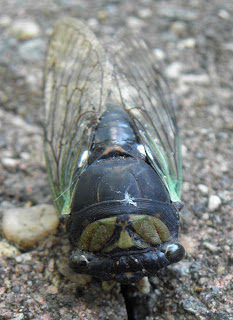If
you do much of anything online these days, you can count on being
profiled by some high-tech algorithm written by Google, Facebook,
Amazon, Yahoo, etc. An algorithm—by the dictionary's definition—is
“a process or set of rules to be followed in calculation or other
problem-solving operations by a computer.” Thus an algorithm is not
monitored by humans; it is set up and then it tirelessly collects its
information via machine.
Online
algorithms appeal to advertisers and authorities, because they
automatically and unerringly categorize and compartmentalize people's
behaviors, choices, and even beliefs. When Google or Facebook tracks
your online choices and surfing behavior, you become profiled. You
become compartmentalized into categories and boxes that they've
defined. You've become labeled.
This
information primarily is used for targeting advertisements at you. If
you are an aging baby boomer, for example, why send you ads for rap
music or the hottest bungee jumping spots? Wouldn't an ad for the
latest pharmaceutical pill for the body's aging infirmities be more
appropriate? Profiling can save advertisers from funding such
scattershot ads, instead allowing them to focus on receptive
audiences. And it can save the consumer from having to push past many
irrelevant ads.
So
many people are just fine with online profiling; it does not waste
their time and screen space with ads they don't want. What many of
these folks do not realize, however, is that they've bargained away
some of their privacy for convenience. That may seem to be a fair
trade to them, but many of them do not realize the depth of the
profiling being done on them. They don't realize just how detailed a
picture of their private lives are now sitting in some data bank,
available to all who pay a small fee for access.
The
profiling information gained by these algorithms even allows the
Google, Facebook, and Amazon data collectors to predict what things
you may want to buy tomorrow. Did you do a search on baby clothes?
You will soon be receiving ads for all kinds of things that
prospective parents might be looking for. Do a search on marijuana?
Maybe the feds have added you to a data base that keeps an eye on
possible pot smokers. This may sound a little paranoid, but the
personal details willingly and foolishly posted on people's Facebook
accounts expose them to the world and can be used against them at
some future time.
Possibly
the most insidious use of online profiling is the way in which
people's points of view adds to our culture's polarization. The
algorithms quickly categorize you into distinct and isolated boxes of
belief patterns; then you get fed only those ideas and expressions
that conform to your predispositions. You get fed things you already
know—confirming your existing beliefs and biases. Your feelings and
beliefs can then become confirmed and certain in your mind. Your mind
is encouraged to close around this isolated pocket of ideas. Your
thinking increasingly avoids any alternatives. You become encased in
a bubble of narrow thinking that just reinforces your point of view.
Nothing challenges your thinking. Polarization grows.
Profiling
goes against the value we may achieve from communication and the
opening our mind to alternative concepts and ideas. It feeds insular
thinking and suspicion of the other. Our society badly needs critical
thinking, openness to alternative ideas, and dialog with other
viewpoints. Online profiling essentially does just the opposite.



